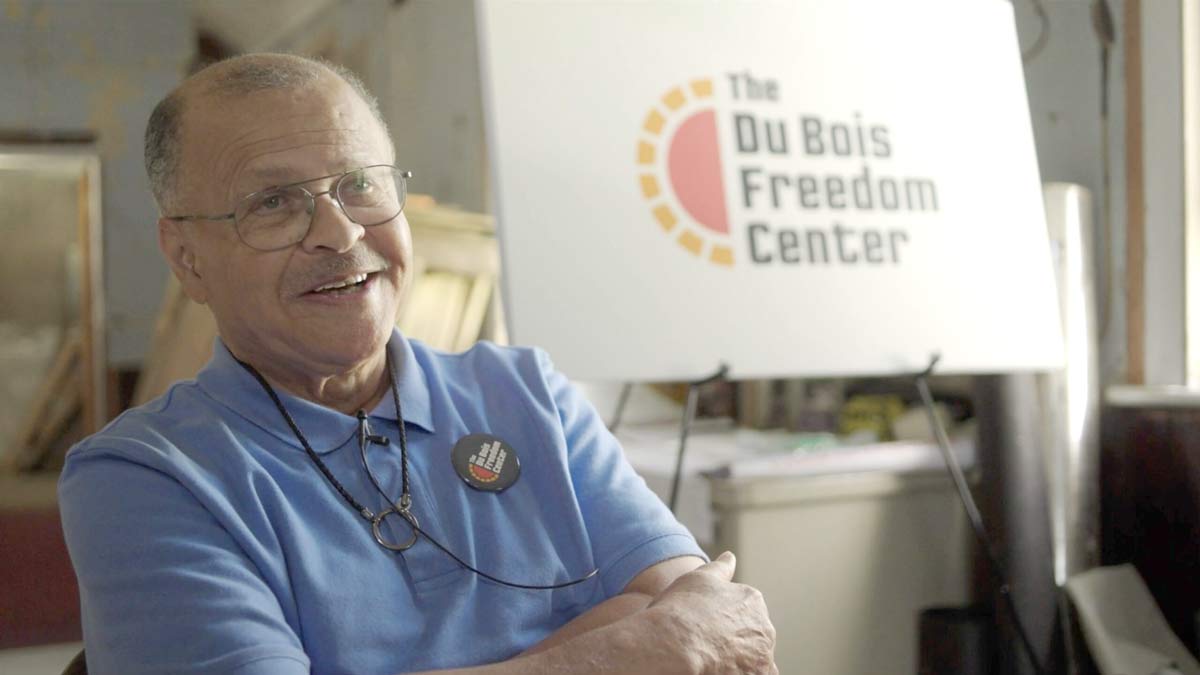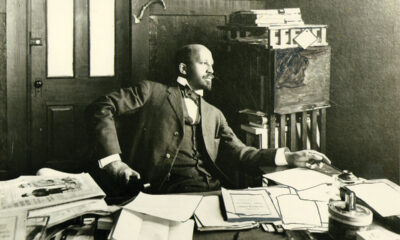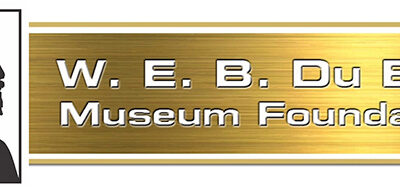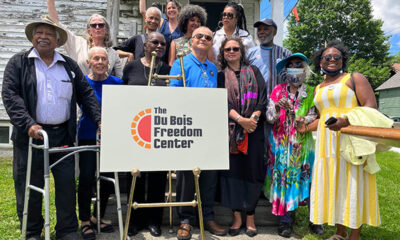Black History
At Jacob’s Pillow, a Celebration of Legacies, Scholars, Masterpieces and the great Dr. David Levering Lewis, Ph.D.

by Bernice Elizabeth Green
On Friday, July 7, Our Time Press stepped out of Brooklyn and into an area of New England where Black history is rich and being kept alive by community groups, non-profits, and scholars to join them in celebrating “Legacies of the Black Berkshires: An Evening with David Levering Lewis.” We drove to Jacob’s Pillow Dance Festival in Becket, Massachusetts for this year’s annual DuBois Forum, conceived and produced by Boston’s Tufts University professors Dr. Kendra T. Field and Dr. Kerri Greenidge.
Dr. Lewis was honored for his great works and scholarship as the Pulitzer Prize-winning biographer of scholar W.E.B. DuBois. His two-part masterpiece earned Lewis two Pulitzers. It also sheds light on an overlooked location of particular distinction in New England and African American History– the Berkshires. In addition to DuBois, others associated with the area by birth or cultural circumstance, include composer and lyricist James Weldon Johnson, photographer James Van Der Zee, revolutionary war hero Agrippa Hull, most of the enlistees in the 54th Volunteer Infantry Regiment of the Civil War, The Rev. Samuel Harrison, Elizabeth “Mum Betts” Freeman, baseball great Frank Grant and more.
At the event, scholars, writers, and artists reflected on Dr. Lewis’s scholarship, public engagement, and expansive intellectual legacy; Tommy-Waheed Evans and his waheedworks dance company merged urban street dance and contemporary dance to gospel music and polyrhythmic sounds, in their performance of Bodies as Site of Faith and Protest. The dance explored “the idea of bodies uniting in protest, moving alongside and within Dr. Martin Luther King’s ‘We Shall Overcome’ speech.
At dinner, vegan chef and food justice advocate Bryant Terry, James Beard award-winning author of four books, created a DuBois-inspired menu in collaboration with the kitchen staff of the Pillow Cafe.
On the table were gift recreations of the DuBois’s bills of fare from three international cities: a 1919 Dinner Menu and invitation (“au restaurant Negre American”) from Paris, France; a February 4, 1924, honorary-dinner menu for “l’homme de S.E. Monsieur le Dr. DuBois” from the Hotel Metropole in Dakar, Senegal; and in New York City, on September 4, 1927, DuBois’ daughter Yolande’s “Welcome Home” dinner menu featuring “Fried chicken a la Marguerite together with Mashed and Candied Potatoes and Yolande Succotash.” There also was a list of DuBois’s 18 Favorite Things, written June 2, 1938, which included his pet vanity (his “beard”); favorite song, “Go Down, Moses” and, at the top of the log, his “best virtue” followed by the answer, “grit.”
Music selections by bassoonist Lecolion Washington, director of the Community Music Center of Boston, the largest provider of arts education to the Boston Public Schools, was the evening’s moving performance highlight. Washington said he found the source of his talent from “within.”
The Du Bois Forum, an annual retreat of writers, scholars, and artists of color, this year boasted some of the nation’s leading stars in those fields. Present were, among many others, Khalil Gibran Muhammad, Ph.D., professor at the Harvard Kennedy School, and the Suzanne Young Murray Professor at the Radcliffe Institute. Jelani Cobb, award-winning writer, author, educator, and Dean of the Columbia School of Journalism; and MacArthur “Genius” Fellow Saidiya Hartman, author of the critically praised “Wayward Lives, Beautiful Experiments: Intimate Histories of Riotous Black Girls, Troublesome Women, and Queer Radicals.”
Brooklyn was in Jacob Pillow’s house, last Friday, indeed. Mr. Terry, a 2021 NAACP Image Award winner and editor of “Black Food: Stories, Art & Recipes from Across the African Diaspora,” informed us that he lived for 10 years on St. James Place, home of the Notorious Big’s block. He read this paper, he told us. But we discovered later from his bio that he taught school-age children how to create healthy meals to take home and share with their families, so we are committed to catching up with him to report on that aspect of his legacy.
The event was made possible by a partnership between the African American Trail Project and the DuBois Freedom Center. For their AATP, Dr. Field and Dr. Greenidge traced the histories of African American residents of Massachusetts and mapped more than 200 historic sites, encompassing 29 towns in the Upper Housatonic Valley National Heritage area. Visit: africanamericantrailproject.tufts.edu









